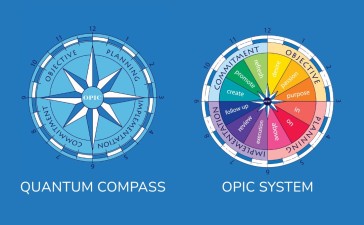Every day people are using personal finances in their lives. Knowingly or unknowingly, humans are becoming an integral part of economics. If you are not clear, an example will help you to learn the context. Let’s say a person wants to buy a new car in the New Year. After using an old model, it’s time to finally upgrade to the latest automobile. An ongoing mortgage payment was preventing them from making this choice but after discussing it with family, you’ve decided to buy a car. In this situation, that individual has used the knowledge of finance to choose the best, most economical option. The mortgage will continue and eventually, the last payment will come but the vehicle might be a limited time model. This could save fuel, time, and repair costs in the long run.
In Forex, investors are faced with such options daily and they use their skill in personal finance to help. In this article, we will explain how this attitude affects investors. If you are new to currency trading, this article will help you understand the market in the future. And to improve the efficiency of the trading system, try to maintain a balanced trading routine. Stop taking the trades in random manner as it will make things hard.
Determine the choice of risks
Maybe the most immediate impact can be seen in the risk-taking nature of investors. After learning about the opportunities, traders want to get rich without working hard. Based on the nature of personal finance management, the styles change. Many start buying premium formulas and use them to make money. Many start learning the basic strategies and practice to improve their performance. Though exposed to currency trading, people have different attitudes towards risk management. Those who understand the dilemmas focus on having a backup plan to protect their capital. They are aware of the volatility and its consequences.
Individuals with no sense of asset management would go for using leverage to make a high profit with a reduced amount but putting the entire fund at risk. In the options trading industry, you have to take managed risk no matter how good the trade signal is. Take smart steps like the elite Aussie traders and it will help you to boost your trading skills. Never expect to win money from a particular trade since no one knows the outcome of the trade.
Affect the preference of broker
You will be surprised to hear that a broker’s choice is not entirely made by the benefits provided. The majority never read the terms and sign up with an intermediary who gives the best bonuses. The excitement wears off after learning their tricks such as depositing money before customers are eligible to withdraw their funds. In this situation, financial knowledge governs the community. A sensible person would never go after bonuses knowing it must not be free. This is an exchange industry where capital is mortgaged when an order opens. No one in their right mindset will allow an investor to make money without taking something in return. If you say to build trust among customers then spread would not have been charged first before order opening.
Then every investor is a finance manager
This is the ubiquitous nature of every participant in the community. Traders are trying to make money without endangering the fund. They use techniques, have backup strategies, and analyze the market to ensure they are on the right track. The purpose behind coming into this industry was to expand their existing bank balance. So learn things from the scratch as it will help you to make better decisions.
What can I do to improve my finance management?
Fortunately, you still have time left to improve your performance. Start making notes and write down the schedules. Only open an order when the trend is favorable. Never go after temporary trends as they cost money in the long run. Learn to sacrifice opportunities to get the best results. Traders can only choose one outcome and that should be done after giving it much thought. If a failure occurs, take a break and distribute the fund evenly. Make sure no order is taking big risks to recoup losses. Set goals and advance accordingly using analysis.





